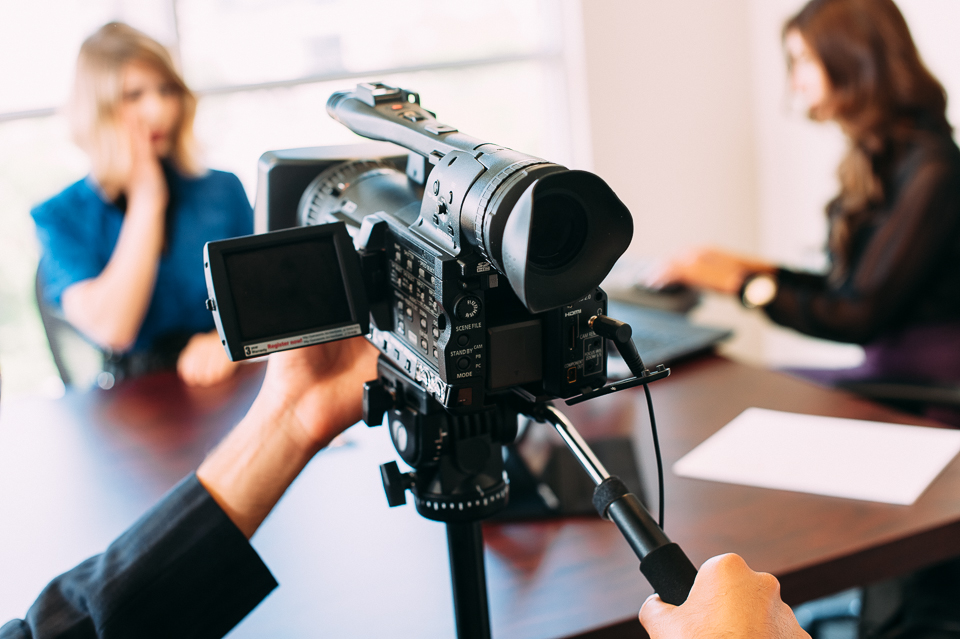The Duty of Lawful Videography in Depositions and Tests
Legal videography has actually emerged as a crucial device in both depositions and trials, supplying a multifaceted strategy to documenting witness testaments. As legal specialists increasingly identify its value, it motivates a deeper assessment of exactly how these visual records can affect juror perceptions and test outcomes.

Value of Legal Videography
Lawful videography plays a crucial role in the paperwork and discussion of depositions and trials. This specific area incorporates technical abilities with legal understanding to produce a reliable record of procedures that can dramatically influence case results. The appearance of legal videography improves the understanding of witness testament, permitting jurors and judges to observe not only the talked words yet also the attitude, feelings, and body movement of the witnesses.
On top of that, lawful videography gives an unbiased account of occasions, decreasing the possibility for false impression that can accompany created transcripts alone. This aesthetic paperwork works as an important device throughout trial presentations, facilitating a more clear and even more influential story for both plaintiffs and accuseds. Additionally, the ability to replay video clip sectors throughout court process makes it possible for legal teams to stress crucial points, reinforcing their arguments properly.
The relevance of lawful videography prolongs past the court; it also plays an essential function in preserving proof for future recommendation, whether for appeals or additional legal activity. Its assimilation into the lawful process is essential for making sure a fair and precise depiction of the facts, inevitably contributing to the search of justice.

Process of Legal Videography
While catching the subtleties of depositions and trials, the process of legal videography involves several critical steps that make sure high-grade, accurate recordings. At first, an expert lawful videographer prepares by reviewing the situation materials and comprehending the details requirements of the deposition or trial. This prep work consists of acquainting themselves with the individuals and the context, which helps in catching relevant details.
On the day of the recording, the videographer sets up the essential tools, which commonly includes high-def cameras, microphones, and proper lighting. Ensuring optimal angles and audio high quality is crucial, as it directly impacts the effectiveness of the recording. The videographer communicates with lawyers and individuals to develop procedures, guaranteeing that everyone understands the recording process.
During the deposition or test, the videographer carefully tapes the procedures, paying very close attention to both verbal and non-verbal cues. This consists of recording the behavior and reactions of witnesses and attorneys. After the session ends, the videographer might edit the footage for quality and compliance with legal criteria, generating an end product that accurately mirrors the procedures for future reference and usage in legal contexts.
Benefits in Depositions
The unification of videography in depositions uses various advantages that boost the general process of collecting evidence. One key benefit is the ability to capture witness testimonies with aesthetic and auditory integrity, offering an extra precise depiction of the witness's attitude, tone, and body language. This multidimensional approach enables attorneys and courts to assess reliability extra successfully than traditional written records alone.
Additionally, videographed depositions work as an effective tool for protecting testimony. Must a witness become not available for web test, their tape-recorded deposition can be played in court, making certain that their evidence stays available and appropriate. This facet substantially lowers the risk of shedding crucial info that might impact situation end results.

Last but not least, videography boosts the overall professionalism and trust of the deposition procedure, instilling self-confidence in clients relating to the thoroughness of their legal representation (legal videography). By leveraging technology, legal professionals can dramatically boost the performance of depositions
Effect On Tests
In lots of trials, the integration of videography can significantly affect the discussion of proof and the jury's perception. Lawful videography records witness testaments and critical proof in a dynamic format, permitting jurors to involve with the material on multiple degrees. This visual component boosts the narration aspect of a trial, supplying context and emotional vibration that typical text-based evidence may do not have.
Furthermore, video recordings can offer as powerful tools for impeachment throughout cross-examination. When discrepancies emerge in between a witness's prior declarations and their courtroom testament, video clip evidence offers an unbiased recommendation that can sway jurors' viewpoints. This immediacy his comment is here and clarity can strengthen the credibility of an event's narrative while all at once threatening opposing disagreements.

Future Trends in Legal Videography
As we look toward the future of legal videography, numerous emerging trends promise to reshape its role within the courtroom. One significant trend is the integration of expert system (AI) in video evaluation and editing and enhancing. AI can enhance the procedure of determining crucial moments in tape-recorded depositions, enabling attorneys to quickly access relevant web content, thus improving efficiency in case prep work.
In addition, the increase of online reality (VR) and augmented fact (AR) modern technologies is anticipated to change exactly how jurors experience evidence. legal videography. By submersing jurors in a substitute atmosphere, these technologies can provide an extra extensive understanding of complex scenarios, leading to even more educated deliberations
Additionally, the raising need for remote depositions, accelerated by the COVID-19 pandemic, will likely proceed. Legal videographers will need to adjust to new software and platforms to make certain high-grade recordings in online settings.
Last but not least, the growing focus on data protection will certainly necessitate more stringent protocols for saving and sharing video proof. As the legal landscape advances, legal videographers have to stay abreast of these patterns to keep their importance and efficiency in the judicial procedure.
Final Thought
In recap, lawful videography serves a vital feature in the judicial procedure, enhancing the honesty of depositions and tests. As innovation proceeds to evolve, lawful videography is poised to additional change its duty within the read this article legal landscape.
Comments on “Flexible Legal Videography for Your Legal Needs.”